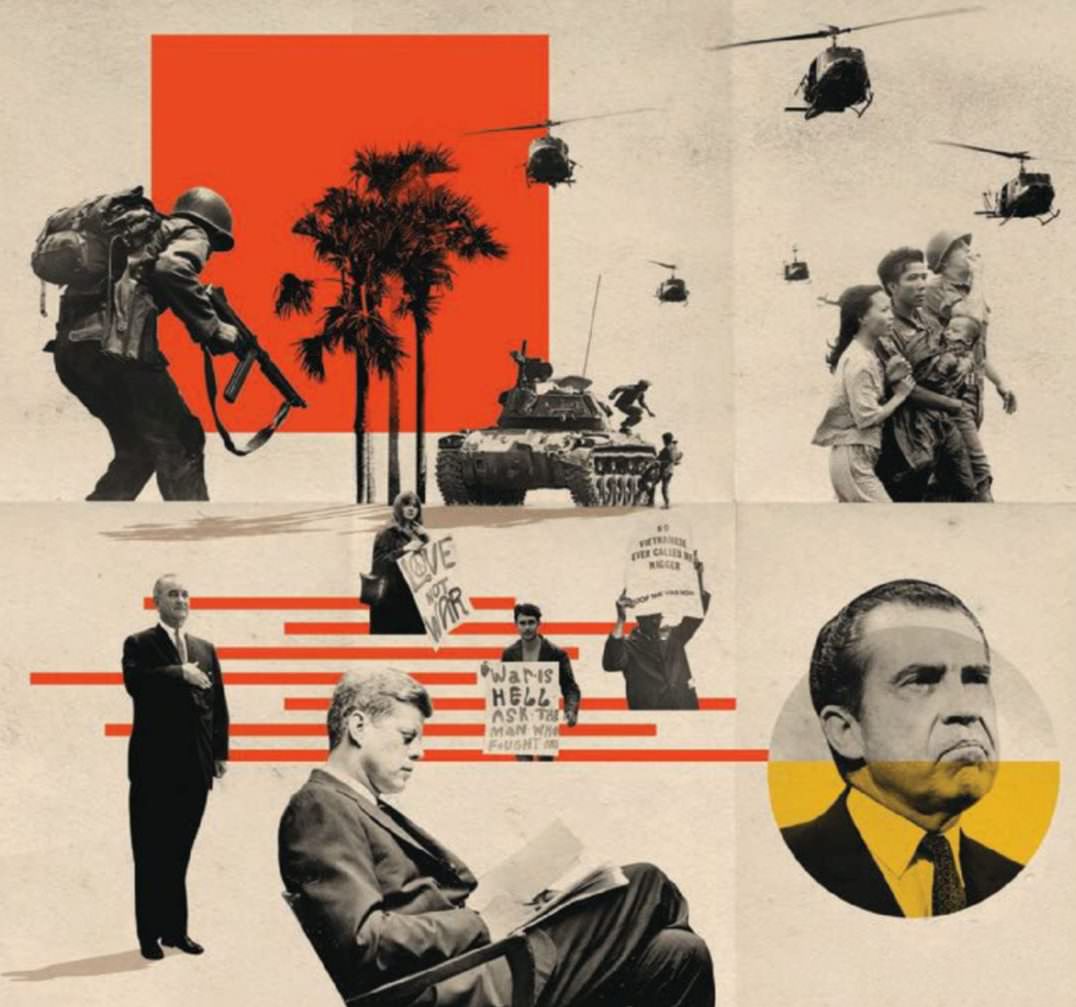Prøve GULL - Gratis
How Americans Lost Faith In The Presidency
The Atlantic
|October 2017
The Vietnam War opened the credibility gap. What we’ve learned since has only widened it.

ON APRIL 30, 1975, when the last helicopter lifted off the roof of the U.S. Embassy in Saigon, the Vietnam War, the most consequential event in American history since World War II, ended in failure. More than 58,000 Americans and as many as 3 million Vietnamese had died in the conflict. America’s illusions of invincibility had been shattered, its moral confidence shaken. The war undermined the country’s faith in its most respected institutions, particularly the military and the presidency. The military eventually recovered. The presidency never has.
It did not happen all at once, this radical diminution of trust. Over more than a decade, the accumulated weight of critical reporting about the war, the publication of the Pentagon Papers in 1971, and the declassification of military and intelligence reports tarnished the office. Nor did the process stop when that last chopper took o›. New evidence of hypocrisy has continued to appear, an acidic drip, drip, drip on the image of the presidency. The three men who are most responsible for the war, John F. Kennedy, Lyndon B. Johnson, and Richard Nixon, each made the fateful decision to record their deliberations about it. The tapes they left behind—some of them still newly public, others long obscured by the sheer volume of the material—are extraordinary. They expose the presidents’ secret motives and fears, at once humanizing the men and deepening the disillusionment with the office they held.
Denne historien er fra October 2017-utgaven av The Atlantic.
Abonner på Magzter GOLD for å få tilgang til tusenvis av kuraterte premiumhistorier og over 9000 magasiner og aviser.
Allerede abonnent? Logg på
FLERE HISTORIER FRA The Atlantic

The Atlantic
You Had to Be There
An emerging field of history asks if we can ever really understand how our forebears experienced love, anger, fear, and sorrow.
23 mins
January 2026

The Atlantic
By the Horns
The week before the biggest bullfight of her career, in Cádiz, Spain, this past July, 24-year-old Miriam Cabas posted a carefully produced video on Instagram.
1 mins
January 2026

The Atlantic
The New German War Machine
After World War II, Germany embraced pacifism as a form of atonement. Now the country is arming itself again.
18 mins
January 2026
The Atlantic
The Eloquence
The prime minister was watching a disaster movie when we found him.
4 mins
January 2026

The Atlantic
What's for Dinner, Mom?
The women who want to change the way America eats
12 mins
January 2026

The Atlantic
How Terror Works
A 1947 German novel explores the sometimes corrosive, sometimes energizing nature of fear.
8 mins
January 2026

The Atlantic
Yesterday's Idea of a Modern Man
Sam Shepard, a self-made cowboy, was also a poet of masculine angst.
7 mins
January 2026

The Atlantic
ACCOMMODATION NATION
America's colleges have an extra-time-on-tests problem.
11 mins
January 2026

The Atlantic
Respect the Drummer
A new history of rock, told through its overlooked heroes
5 mins
January 2026

The Atlantic
THE MOST POWERFUL MAN IN SCIENCE
WHY IS ROBERT F. KENNEDY JR. SO CONVINCED HE'S RIGHT?
42 mins
January 2026
Translate
Change font size
